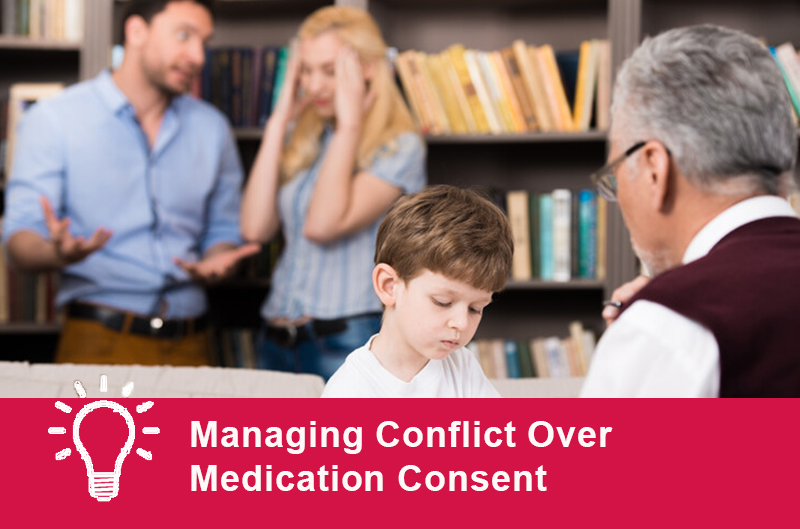Managing Conflict Over Medication Consent
, Volume , Number ,
https://www.thecarlatreport.com/#
The following tips for overcoming conflict in the medication consent process were excerpted from an informed consent article in the May/June issue of The Carlat Child Psychiatry Report: 1. If it’s not an emergency, take your time. When life and limb are at stake, we should act immediately—but that doesn’t usually mean medicating so much as employing emergency services. Even if a child is experiencing stress from an upcoming test or an acutely sad or anxious state, most times the situation is not an emergency. Give yourself time to think, gather more information, and understand as best as you can the many factors at play. Once these are more clear, possible treatment paths are likely to emerge. 2. Lean in. When there are opposing forces, embrace the adversarial process, the kind that drives a good judicial system. I tell families that I am grateful for differences of opinion because they lead to a more meaningful discussion of the pros and cons of medication. When everyone knows that you are really listening to their perspectives, they usually settle and think more clearly. For example, this often leads to a very careful trial of medication. 3. Honor everyone’s rights. Learn what the rights of teens are in your state to request and receive psychotropic medication. Lay out the rights of all parties and allow the process to lead to solutions rather than imposing them from on high. Do this while making sure that no one dominates to the point of silencing others. Remember to think developmentally with children, assessing their ability to participate and welcoming this possibility as it results in better care. Subscribers can read the in-depth article on informed consent in The Carlat Child Psychiatry Report, click here. Not a subscriber? Join here.


